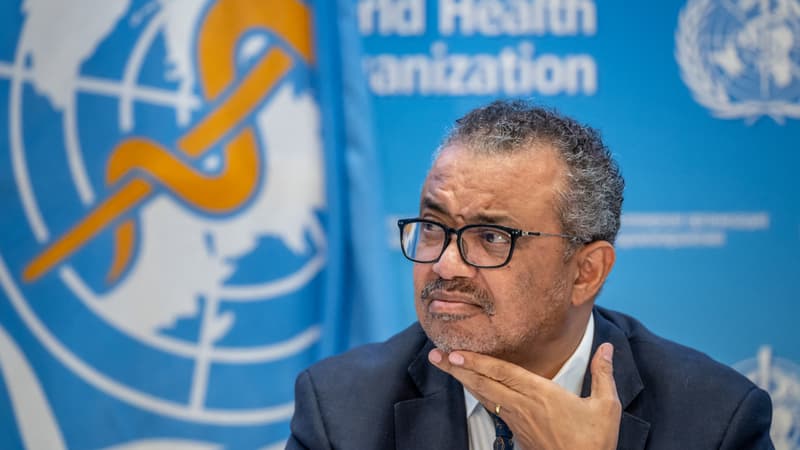The Covid-19 pandemic, which is entering its fourth year and has already claimed nearly 7 million lives, remains serious enough to maintain the highest alert level launched three years ago to date. The World Health Organization (WHO) confirmed on Monday that the covid-19 pandemic remains a public health emergency of international concern, as it did for the first time on January 30, 2020. Then, the world had less than 100 cases and no deaths outside of China.
The WHO identified more than 752 million patients and almost 7 million deaths on Friday, according to official figures, well below the reality of the organization’s own admission. Its director general, Tedros Adhanom Ghebreyesus, followed the recommendations of the Emergency Committee on Covid-19, experts who met for the fourteenth time last week.
“As we enter the fourth year of the pandemic, there is no doubt that we are in a much better situation now than a year ago when the Omicron wave was at its peak,” said the WHO chief at the opening of its Executive Committee. . meeting on Monday in Geneva for a week.
170,000 deaths in the last two months
But, he immediately tempered: “Since the beginning of December, the deaths reported each week have increased. In the last eight weeks, more than 170,000 people have lost their lives due to Covid-19.
“My message is clear: ‘Don’t underestimate this virus, it has shocked us and will continue to shock us and will continue to kill unless we do more to deliver health services to people in need and fight global misinformation.” scale”, the CEO had insisted last week.
By the week of January 16-22, half of the 40,000 official deaths had been recorded in China. Despite some of the toughest health restrictions in the world, variants of the virus have managed to break through, and late last year, to popular outrage, the Chinese authorities were forced to abandon the “zero covid” policy. The gigantic wave of infections that swept the country now appears to be abating. Officially, the number of deaths has been reduced by almost 80%.
Scarred by the failures in early 2020, many countries had introduced restrictions for travelers from China. In fact, the alert launched on January 30, 2020, served by an evocative name, failed to convince the authorities and the general public of the urgency of the situation. It wasn’t until March 11, when Dr. Tedros spoke publicly about a “pandemic” for the first time, that the worst health crisis in over a hundred years was taken seriously.
Insufficient number of sequencing and vaccinations
Three years later, the Committee considers that “the Covid-19 pandemic is probably at a transition point”, but the head of the WHO regrets that surveillance and genetic sequencing, which make it possible to follow the evolution of the virus and its movements have diminished. abruptly.
It also regrets that very few people are properly vaccinated, whether in poor countries due to lack of serum, means and distrust or in wealthy countries where boredom flourishes and where the anti-vaccine movement has sown doubt, despite numerous studies that show its safety. benefit from vaccinations. “We cannot control the Covid-19 virus, but we can do more to address the vulnerabilities of populations and health systems,” Dr. Tedros said Monday.
A world “dangerously unprepared”
But the world remains “dangerously ill-prepared” for the next pandemic, the Red Cross warned in a report on the lessons of the pandemic released Monday.
“The next pandemic could be imminent and if the experience of Covid-19 doesn’t accelerate preparations, what will?” asked Jagan Chapagain, secretary general of the International Federation of Red Cross and Red Crescent Societies ( IFRC).
“Global preparation for the Covid-19 pandemic was inadequate and we are still suffering the consequences. There will be no excuses” if we do not prepare, he stressed.
Source: BFM TV


